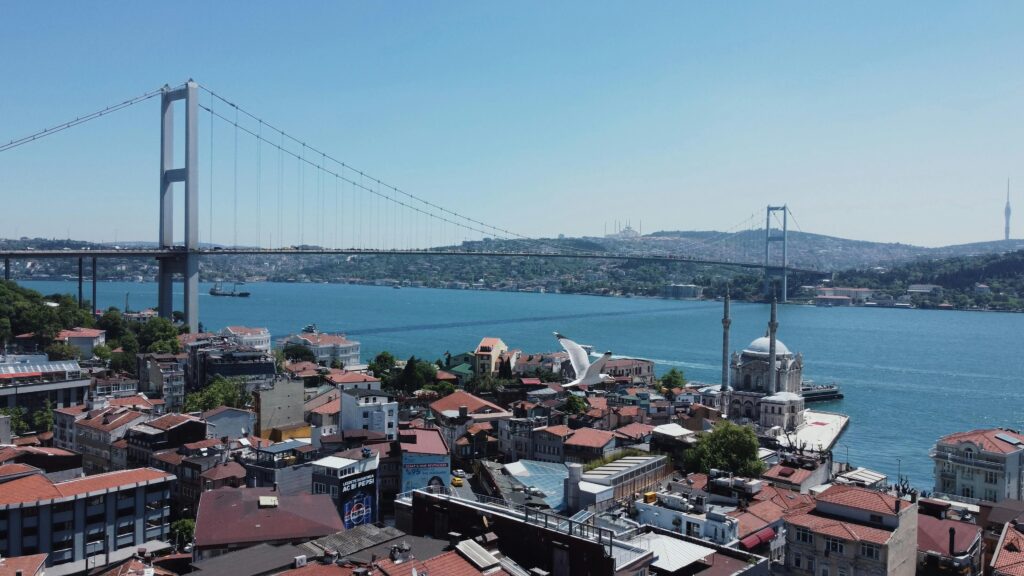1.1 Introduction to Refugee Law
Refugee law is a complex and evolving field of international law aimed at protecting individuals who flee their country due to well-founded fears of persecution based on race, religion, nationality, membership in a particular social group, or political opinion. The 1951 Refugee Convention and its 1967 Protocol form the core of international refugee law, setting the standards for refugee protection, including the principle of non-refoulement.[1] This principle, enshrined in Article 33[2] of the 1951 Refugee Convention, prohibits the expulsion or return (“refoulement”) of a refugee to a country where their life or freedom would be threatened. The Kenyan government’s recent act of repatriating four Turkish nationals raises legal questions concerning the obligations of states under both national and international law.
1.2 Facts Surrounding the Kenyan Act of Repatriation
On October 18, 2024, the Kenyan government repatriated four Turkish nationals at the request of Türkiye after they were they were kidnapped at gunpoint by armed men who covered their faces with masks and claimed to be members of a security unit in Kenya. These individuals, who had been living in Kenya as refugees due to their fear of persecution from their origin due to their divergent political views, were returned to their home country under assurances from the Turkish authorities that they would be treated with dignity and in line with national and international law, as outlined in a statement by the State Department for Foreign Affairs.[3] The Kenyan government emphasized the historical and strategic ties between Kenya and Türkiye, suggesting that this bilateral relationship influenced its decision. The government also stressed its commitment to protecting refugee rights and reiterated its respect for confidentiality in such matters, pending an inter-agency review.
This case presents a critical legal issue: does Kenya’s decision to repatriate these individuals align with its obligations under refugee law? Furthermore, does the act constitute a breach of the principle of non-refoulement or other protections under international refugee law?
1.3 Legal Framework: Refugee Law and the Principle of Non-Refoulement
Kenya is a signatory to the 1951 Refugee Convention and its 1967 Protocol[4], as well as the 1969 Organization of African Unity (OAU) Convention Governing the Specific Aspects of Refugee Problems in Africa.[5] These instruments collectively provide the legal framework for refugee protection in Kenya. The core principle, as mentioned earlier, is non-refoulement, which prohibits a state from forcibly returning refugees to a country where they face threats to life or freedom. Additionally, Article 1[6] of the OAU Refugee Convention expands the definition of a refugee to include individuals fleeing external aggression, occupation, foreign domination, or serious public disorder.

Under international law, states are obligated to provide asylum to individuals who qualify as refugees and ensure they are not forcibly returned to a situation where their safety is compromised. Furthermore, the International Covenant on Civil and Political Rights (ICCPR) prohibits arbitrary deportation and emphasizes the right to life, liberty, and security of person. In cases of repatriation, states must ensure that it is voluntary and that refugees are not at risk of persecution upon return.[7]
1.4 Kenyan Law and Refugee Protection
At the national level, Kenya’s Refugees Act (2006, amended in 2021)[8] governs refugee protection, incorporating international standards of refugee law into domestic legislation. The Act reaffirms the principle of non-refoulement and outlines the procedures for granting refugee status, ensuring that refugees in Kenya are protected from forced return to danger. Kenya is also home to one of the largest refugee populations in Africa, and its legal framework has been praised for offering considerable protection to refugees, particularly those residing in large camps such as Kakuma and Dadaab.
1.5 Kenyan Act vs. International Refugee Law: Possible Breaches
The repatriation of the four Turkish nationals raises concerns about whether Kenya adhered to its obligations under international refugee law, particularly in relation to non-refoulement. The key question is whether these individuals faced a risk of persecution or serious harm upon their return to Türkiye. While the Kenyan government asserts that it received assurances from Turkish authorities regarding the treatment of the repatriated individuals, these assurances must be carefully scrutinized to determine their adequacy under international law.
Assurances from the home country do not always provide sufficient guarantees, as states may fail to fulfill their obligations, especially in cases where political persecution is involved. International human rights bodies have cautioned against relying solely on diplomatic assurances, particularly when there is a well-documented history of persecution or rights violations in the receiving country.[9]
In this context, Kenya’s act of repatriating the refugees without sufficient transparency or public scrutiny may constitute a breach of the principle of non-refoulement. The only exceptions to non-refoulement as provided under Article 33(2) of the Refugee Convention is that the refugee is a threat to national security or has been convicted of a serious crime. None of these exceptions apply in this situation. By repatriating the individuals, Kenya might have violated its duty to ensure that the refugees were not returned to a situation where they could face persecution or harm.
1.5.1 Conclusion and Recommendations
The repatriation of the four Turkish nationals by the Kenyan government raises serious legal questions regarding Kenya’s compliance with both its domestic law and international refugee law obligations. While Kenya’s historical and strategic relations with Türkiye were cited as a key factor in the decision, the legal implications of this act must be carefully examined. The principle of non-refoulement, as codified in the 1951 Refugee Convention, is a fundamental tenet of refugee protection and cannot be overridden by diplomatic or bilateral considerations.
To ensure that Kenya remains compliant with its obligations under international law, the government should take the following steps;-
- Strengthen Transparency in Repatriation Decisions. Kenya must provide more transparency in cases of repatriation, allowing for public and judicial scrutiny of decisions to ensure that refugees are not being returned to situations where they face a risk of persecution or serious harm.
- Adhere to International Standards of Non-Refoulement. The government should reaffirm its commitment to the principle of non-refoulement by ensuring that no refugees are forcibly returned without a thorough assessment of the risks they may face in their home country.
- Seek Independent Verification of Diplomatic Assurances. In cases where diplomatic assurances are offered by the receiving country, Kenya should seek independent verification from international bodies such as the United Nations High Commissioner for Refugees (UNHCR) or relevant human rights organizations to ensure that the individuals will be treated in accordance with international law.
- Strengthen National Legislation on Refugee Protection. While Kenya’s Refugees Act provides a strong legal framework, it could be further strengthened to include explicit provisions on the monitoring of repatriated refugees and the consequences of failing to adhere to diplomatic assurances.
In conclusion, the protection of refugees must remain a priority for Kenya, and any repatriation decisions must be made in strict compliance with international and national refugee laws. The Kenyan government’s commitment to upholding the rights and well-being of refugees, as stated in its official declaration, must be reflected in its actions, ensuring that refugees residing in Kenya are protected from harm and that the principle of non-refoulement is upheld without exception.

Author: Patrick Muema Mumo
Patrick Muema Mumo is an Advocate of the High Court of Kenya & Rwanda. He Holds a Bachelor of Laws and and LLM in Public International Law.
[1] Convention Relating to the Status of Refugees (adopted 28 July 1951, entered into force 22 April 1954) 189 UNTS 137 (Refugee Convention); Protocol Relating to the Status of Refugees (adopted 31 January 1967, entered into force 4 October 1967) 606 UNTS 267.
[2] Refugee Convention,1951, Article 33
[3] Kenya Ministry of Foreign Affairs, ‘Statement on the Repatriation of Four Nationals to Türkiye’ (State Department for Foreign Affairs, 18 October 2024).
[4] Ibid n1
[5] Organization of African Unity (OAU), Convention Governing the Specific Aspects of Refugee Problems in Africa (adopted 10 September 1969, entered into force 20 June 1974) 1001 UNTS 45.
[6] Ibid n5,Article 1
[7] International Covenant on Civil and Political Rights (adopted 16 December 1966, entered into force 23 March 1976) 999 UNTS 171 (ICCPR).
[8] Refugees Act 2006 (Kenya);Refugees (Amendment) Act 2021 (Kenya).
[9] UNHCR, ‘Guidelines on International Protection No. 5: Application of the Exclusion Clauses: Article 1F of the 1951 Convention relating to the Status of Refugees’ (UNHCR, 2020).


Great work Snr Counsel 5 star 🌟
Perfectly placed as this questions whether Kenya’s repartition of 4 Turkish nationals complies with international refugee law’s non-refoulement principle. The research stands out in emphasizing that bilateral ties and diplomatic guarantees cannot supersede Kenya’s legal duties to shield refugees from possible persecution. The ending is equally captivating with its suggestions for increased law, openness, and standard-setting to ensure Kenya keeps its promises of refuge rights.
This is well said, keep up the great job.
I suspected the act to be against the law. Thank you for this article